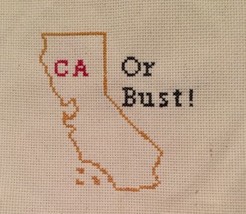We are pleased to cross-post this delightful photojournalism piece by Mark Phillips, inspired by the Field Guide Co-Cycle story. It was originally posted at the Philadelphia Area Cooperative Alliance website.

Though I’ve been in Philadelphia for about six years now, my interest in its cooperative economy is relatively new. It was only after attending the New Economy Coalition’s Commonbound conference last year that I began to appreciate the value cooperatives bring to their local communities and economy. In addition to their economic benefits, Philadelphia co-ops like W/N W/N Coffee Bar and Mariposa Food Co-op have become portals into local culture and economy, showing me what is possible for a community of individuals looking to make a difference.
And so, given a recent opportunity to visit a friend in San Francisco, I thought it would make for a more interesting trip if I spent my time and tourist dollars exploring the Bay Area’s cooperative economy over the standard tourist hot spots. This post offers a variety of personal photographs with accompanying descriptive captions, presented in a loose narrative of exploration throughout the week. My hope is to share a piece of my travels with fellow cooperators from the Philadelphia and surrounding areas so that we may better appreciate the national context of our work and, in doing so, be inspired in our efforts locally.
REFLECTIONS ON THE VISIT:
The cooperative economy in the Bay Area represents an impressive array of businesses. The Arizmendi Association of Cooperatives are phenomenal examples of economic cooperation, while the bookstores all provide important meeting spaces in their local communities and cultural circles. The Missing Link Bicycle Cooperative was the first retail co-op I set foot in that didn’t sell food or beverages, leaving me with a tangible appreciation for the applicability of cooperative enterprise models to all business types. Nevertheless, the co-ops visited represented only a small fraction of all businesses in the Bay Area. Why can’t all businesses be like the Cheeseboard — just one big party, every day? What if those companies in the tech sector were responsible for abundance, not scarcity? These are perhaps questions for another visit.
What stood out to me at all of the different co-ops was the sense of community, both among the workers and the patrons. Each co-op was also a reflection of place — honoring local culture, history, and environment. Touring the Bay Area’s cooperative economy left me with a lot to think about for our work in the Philadelphia area. Mainly, what do we have to learn from our fellow cooperators on the west coast? Is there an opportunity for Arizmendi Bakeries here in Philadelphia? Could we turn one of our many bike shops into a worker cooperative?
Maybe it’s the weather, but I’m not so sure there’s any inherent difference between here and there. Philadelphia has an equally robust assortment of cooperatives thanks to years of hard work from local organizers. If anything, an awareness of other co-ops around the country should serve as a source of inspiration for our work here in the Philadelphia area. We can rest assured that while we take care of our communities locally, our partners across the country are equally engaged in the creation of a cooperative economy in service to people and planet.
And so, given a recent opportunity to visit a friend in San Francisco, I thought it would make for a more interesting trip if I spent my time and tourist dollars exploring the Bay Area’s cooperative economy over the standard tourist hot spots. This post offers a variety of personal photographs with accompanying descriptive captions, presented in a loose narrative of exploration throughout the week. My hope is to share a piece of my travels with fellow cooperators from the Philadelphia and surrounding areas so that we may better appreciate the national context of our work and, in doing so, be inspired in our efforts locally.
REFLECTIONS ON THE VISIT:
The cooperative economy in the Bay Area represents an impressive array of businesses. The Arizmendi Association of Cooperatives are phenomenal examples of economic cooperation, while the bookstores all provide important meeting spaces in their local communities and cultural circles. The Missing Link Bicycle Cooperative was the first retail co-op I set foot in that didn’t sell food or beverages, leaving me with a tangible appreciation for the applicability of cooperative enterprise models to all business types. Nevertheless, the co-ops visited represented only a small fraction of all businesses in the Bay Area. Why can’t all businesses be like the Cheeseboard — just one big party, every day? What if those companies in the tech sector were responsible for abundance, not scarcity? These are perhaps questions for another visit.
What stood out to me at all of the different co-ops was the sense of community, both among the workers and the patrons. Each co-op was also a reflection of place — honoring local culture, history, and environment. Touring the Bay Area’s cooperative economy left me with a lot to think about for our work in the Philadelphia area. Mainly, what do we have to learn from our fellow cooperators on the west coast? Is there an opportunity for Arizmendi Bakeries here in Philadelphia? Could we turn one of our many bike shops into a worker cooperative?
Maybe it’s the weather, but I’m not so sure there’s any inherent difference between here and there. Philadelphia has an equally robust assortment of cooperatives thanks to years of hard work from local organizers. If anything, an awareness of other co-ops around the country should serve as a source of inspiration for our work here in the Philadelphia area. We can rest assured that while we take care of our communities locally, our partners across the country are equally engaged in the creation of a cooperative economy in service to people and planet.
| Mark Phillips works in micro-enterprise and community economic development in Camden, NJ. He did a year of Americorps VISTA at the Philadelphia Department of Commerce after graduating from Temple University in 2013. Mark is on Twitter at @MarkjPHL. |

 RSS Feed
RSS Feed